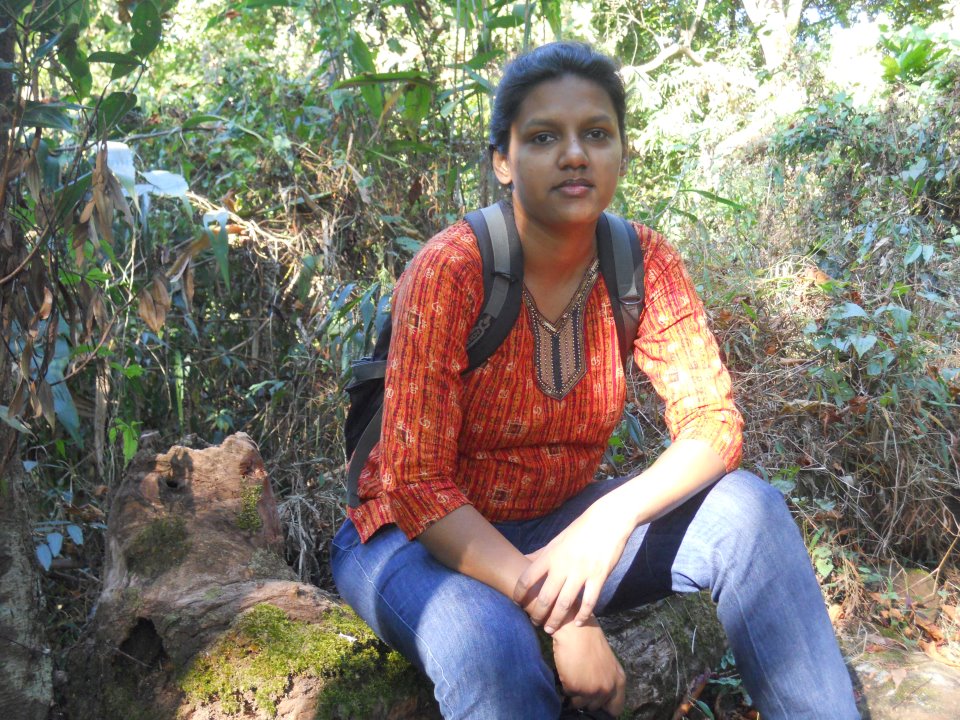Senganglu Thaimei
 It is with a compelling urge to let out my angst that I sat down to write in Tulihal, the airport in Imphal. A stringent curfew had been announced, and news of burning vehicles and sounds of tear gas or perhaps gunshots were welling up in the Imphal valley. This was because of the Meitei led (upper caste Manipuri community) protest against the assault of the Meitei actress Momoko – she was allegedly slapped and dragged by the hair during a fundraiser event – by a Naga man belonging to the National Socialist Council of Nagalim NSCN (IM), which is an armed ‘revolutionary’ organization. This is the 23rd of December 2012, and Manipur is burning yet again.
It is with a compelling urge to let out my angst that I sat down to write in Tulihal, the airport in Imphal. A stringent curfew had been announced, and news of burning vehicles and sounds of tear gas or perhaps gunshots were welling up in the Imphal valley. This was because of the Meitei led (upper caste Manipuri community) protest against the assault of the Meitei actress Momoko – she was allegedly slapped and dragged by the hair during a fundraiser event – by a Naga man belonging to the National Socialist Council of Nagalim NSCN (IM), which is an armed ‘revolutionary’ organization. This is the 23rd of December 2012, and Manipur is burning yet again.
Unlike many of my co-passengers I have the privilege of a cousin who arranged a room for me in the Airports Authority of India guest house. While I am thankful, it is very weirdly mixed with extreme sadness. And the moment I got to sit down, my fingers punched away on my laptop as though to beat away my fear.
After endless phone calls and advice against coming home for Christmas the previous night, I had whimsically decided to brave the crisis. “After all I am only going home to meet my aging parents” I reasoned. Moreover, it was just a 15 minutes’ drive from the airport to my house. The protest against the assault on the Manipuri female actor had reached its peak and would end soon, or so it seemed. But that was to be proven wrong as things only got worse.
At 2:30 PM, as my flight touched the Manipuri soil and the air hostess announced that we are allowed to use our mobile phones, my fingers hastily dialed my brother’s number which was picked within a single ring. His anxious voice informed without a moment wasted, “a press man has been shot dead as the police opened fire against the protestors.” Clueless of a reaction befitting the moment I asked him, “Now what?” He told me to wait until he called back. Interestingly, in the same flight the Chief Minister was also seated, and I very stupidly wished that we could follow the Big Boss’s escorts and reach home safely. After all, home was just 15 minutes away…..
The airplane halted and a white ambassador with a red beacon glided to the foot of the stairs and the Chief got into it and drove away. I had not moved from my seat or even unfastened my seat belt. How could I be so stupid to have thought that the Chief Minister is going to help me in anyway?! Especially when I had cynically smirked at his performance of aam admi along with Rahul Gandhi by having tea and pakora at a dhaba for a day?! Well my stupidity, out of desperation to reach home! Also, the cold December evening refused, not unlike the Head of the State, to warm up. Despite the profuse burning of the land and its people…
Even as I sit here and write these few lines, I am constantly disturbed by the heart wrenching sound of women wailing. I peer out of the guest house’s window with my fingers still on the keyboard. There are women in their mourning attire of pink sarong and white body-cloth squatting in groups of 5 or 6 in front of the airport building. They are waiting for a body to be carried out from the cargo. A son or maybe a daughter, the news of whose death must have reached his/her home the night before. I too wait with them, deeply moved but perhaps unable to grieve the same way.
The body is finally carried out wrapped in white cloth. The men now join the women in their outbursts of pain of losing him/her. A few young men who are also in mourning-clothing, hang a banner on the open truck into which the body is carried. The banner reads: “Manipur Volley Ball Association”. The banner tells a hundred untold tales of muted heroes who lived unsung and who died unnoticed. A potential Mary Kom or a Sushil Kumar who never saw the glory, whose funeral will take place in the midst of curfew, the voices of his mourners doused in the sounds of tear gas. The land that brims with talented people, as we love to tell each other, lies paralysed with burnt injuries.
The television set in my guest house room has been buzzing with images of massive protests at Raisina Hill in Delhi against “the most brutal rape ever”. An unnamed 23-year-old paramedic student in Delhi, an every girl in the city; and an assaulted Manipuri actress with a fancy Japanese name, in a fund raiser event organised by the ‘hill brothers and sisters’ (a euphemism used for tribal people, but not totally free of certain connotations).
While my rage against the perpetrators of violence against women is no less than the people who took to the streets, a few disturbing questions haunt me which I perhaps cannot articulate.
The ‘braveheart’, ‘the sister’, ‘the daughter of the soil’ – the names given for the Delhi girl resonates with the alternatives given for the Meitei actress with the Japanese names. One also sees the parallel strategic places to protest – Lutyens’ Delhi and the capital city of Manipur, the Imphal valley, which is where most of the upper caste Manipuris live? And I can also see how in both Delhi and Manipur, the news channels are constantly trying to gauge the gravity of the issue by counting the number of people in the street.
Despite these parallels, the word ‘gangrape’ lunged at me reminding me of another gangrape – of a tribal woman by a group of men in Vishnupur district of Manipur not very long ago, and the silence that followed. She was not an ‘artiste’ in pursuit of finer things of life, but a woman who walked for miles from her village up in the hills called Luanglei, which is better known by mispronounced Nungleiban, carrying loads of bananas to sell them to the vendors in the nearest market. Perhaps she used to sit in Hao Kaithel – a section meant for the tribals isolated within the market.
The brave Meitei women who famously shook the world with their nude protests proclaiming ‘INDIAN ARMY RAPE US’, against intrusive powers that destroyed the dignity of Manipuri women or the sons of the soil who would readily be ‘martyred’ for the cause, made no more sound than a mere whimper about this gangrape. There were no protests; no burning of tyres and the television sets did not resound with her assault as it was being done in the case of the Meitei actress. Thus the accused escaped with a paltry suspension from their government jobs. And the tribal woman was denied justice, which the Meiteis want it all for themselves.
I sit here and wonder. Is this tribal woman’s dignity included in the collective dignity of Manipuri women (which ‘also’ includes non-Meiteis)? Or are they silent because the violence was meted out by our own “valley brothers” (Meiteis) towards a ‘hill woman’ (Manipuri euphemism for ‘tribal’) and not a case of rascals from Assam Rifles raping a Meitei woman? Or is this unusually calm, ‘mature’ reaction to the gangrape a justification to “avoid communal division and bloodshed”? Or is it too trivial to revisit (though it was within the same year) even at this point in time when protesting in different art forms or otherwise is the trendiest thing to do? Or do we need the approval of the great Indian Capital to talk about a parallel incident? Is the tribal woman denied of justice because her brutal misfortune did not coincide with an ‘awakening’ of the Indian mainland?
The wailing for the dead died down; perhaps they have left the premise. Fresh rounds of random gunshots resounded clearer and louder, perhaps the mob is now very close to the airport. Let me now sleep a while as I plan to get out of this room as early as possible tomorrow morning and perhaps run home as fast as I could before the protestors come out in the streets again.
After all, home is just fifteen minutes away…
Merry Christmas!
~~~
Senganglu Thaimei teaches English at Miranda House, Delhi. She has worked on archiving and translating the oral narratives of the Zeliangrong tribe of Manipur. She also writes short stories and children’s stories that are set in the rich and complex history and oral tradition of the Naga Tribal communities of Manipur. They are yet to be published.
